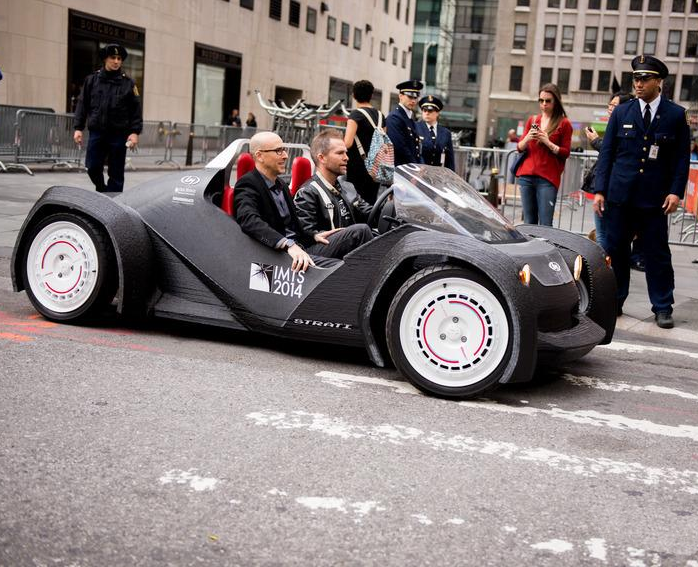First lap for faster future cars
 While many miss the long gone days of hand-built automobiles, a trade show in the US has shown a glimpse of the automated, extruded, car-making future.
While many miss the long gone days of hand-built automobiles, a trade show in the US has shown a glimpse of the automated, extruded, car-making future.
Additive manufacturing, or 3D-printing, is a process that is gaining popularity in the design and construction worlds due to its ability to speed-up creation, cut prototyping times and build things in previously impossible shapes.
At a Chicago trade show, US firm Local Motors unveiled what they say is the world's first 3D-printed car, featuring a body stamped in a mix of carbon fibre and plastic.
It has been dubbed the ‘Strati’, from the Italian word for ‘layers’.
The car's body was actually formed by a giant printer at the show, which took two days to shape and refine the 1,000 kilogram vehicle.
The electric engine, suspension and tyres still come from traditional methods, but new ground has been broken in the minimisation of parts.
The Strati has just 49 components in total, compared to around 5,000 parts in any normal car on the road today.
Strati is extruded by a machine called BAAM (big area additive manufacturing), which has a deposition rate of about 18 kilograms per hour.
But the great advantage comes before the final build.
Local Motors says its engineers have only been in the design process from May this year.
It has taken just four months to go from the design board to having a full-fledged electric car rolling off the line.
With just weeks in the time frame from conception and design to production, 3D-printing shows its ability to greatly reduce formerly lengthy processes.
Most traditional car manufacturers have years between their design and construction phases, and must often work with specific components and body parts that run across the entire company.
With additive manufacturing, many more individual and custom pieces can be implemented in each vehicle, and changes could be made at any time without having to go back or re-tool any machines.
Local Motors says it is seeking official approval for road use, and it expects to be able to retail the Strati soon, for around $20,000.








 Print
Print